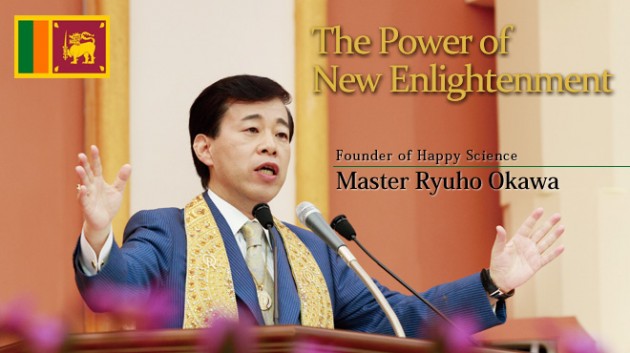Master Okawa Teaches the True Buddhism in Sri Lanka
If you could choose between living only once and living many times, what would be your preferred option?
To a certain extent, your answer will depend on your present life. Let’s say you’re happy with your life. When you get old and your last day approaches, you will probably tell your husband or your wife: “Let’s spend our next life together, too!” Let’s say you have regrets and feel you could have done better. In that case, you might think: “If I could I’d like to make a fresh start and do better next time.” Or maybe you are completely unhappy with your life and feel that living once was plenty for you.
But whatever may be your preferred option, fact is that only one of the two corresponds with the truth. Are human beings born only once, or are we born repeatedly in a process called reincarnation? This is the most fundamental question we can ask about life because depending on the answer, your definition of “life” will change.
Theravada and mahayana Buddhism – What’s the difference?
On November 6th 2011, Master Ryuho Okawa of Happy Science made his first visit to Sri Lanka, where he spoke to his audience in English. The title of his sermon was “The Power of New Enlightenment”. At a top venue called “Water Edge Capital City”, three enormous tents were pitched holding 13,000 Sri Lankans who had come to hear Master Okawa. After Master’s sermon in India in March 2011 that had attracted an audience of 40,000 people, his reputation had preceded him, and 18 media, such as Sri Lankan and Indian TV, radio, and newspaper, were present. Only a few hours after the actual sermon, 30 minutes of its content were broadcast uncut on Sri Lankan TV. One of the central issues was whether Buddha, the enlightened one, was born only once, or whether he would appear in this world again.
70% of Sri Lankans are Buddhists. After the Buddha’s death, Buddhism split into the Theravada and the Mahayana school. In these forms it began to spread. What took root in Sri Lanka was the Theravada school of Buddhism, which focuses on the Buddha’s early teachings.
In 6th century BC India, while the Buddha was alive, life was much tougher than what most of us experience today. Poverty, disease and war were rampant, and it was easy for people to become weary of worldly misery. To offer a beacon of hope and save them from their daily struggle, Buddha emphasized his teaching that “Once you are enlightened and enter nirvana, you are no longer forced to be reborn and endure the hardships of worldly existence.” This teaching that once Buddha has attained enlightenment and entered a state of nirvana he ceases to be reborn has traditionally been passed down to Sri Lankan Buddhists, too. The Wikipedia article explaining the Buddhist concept of reincarnation is also based on this typical Theravada thought.
In Mahayana Buddhism on the other hand, the powerful ideas Buddha taught mainly during his later years are also transmitted. One of these thoughts that appears in the Lotus Sutra is that Buddha’s disciples will be reborn and experience the same enlightenment as Buddha himself. Are humans reborn? Is Buddha reborn? The answers to these questions Master Okawa offered during his sermon in Sri Lanka are summarized below.



















